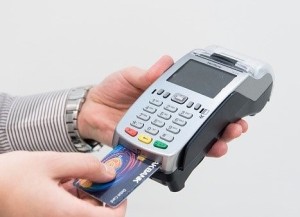Tips for Guarding Against Credit Card Fraud in Your Church Organisation
February 7, 2020 - 6 minutes read Each month Australians collectively spend millions of dollars on their credit cards. This includes both personal and work-issued cards.
Each month Australians collectively spend millions of dollars on their credit cards. This includes both personal and work-issued cards.
Many of these expenditures might be done while out shopping but they also just as likely to happen online or by phone. The latter is usually where most of the risks lie, as fraudsters don’t need your physical card on them to use your account.
Data from the Australian Payments Network shows credit card fraud is rising and becoming more sophisticated, and is more likely to happen over the phone or the internet.
In any case, both buyers and sellers need to be alert to the risks of credit card fraud. They also need to know how to take steps to prevent fraud and what to do if a scam occurs.
Sellers / Merchants
If your organsation takes payments for goods or services (e.g. books, food / coffee, donations, Op Shop goods, events) you need to be vigilant when it comes to credit card transactions.
Security and prevention tips:
- Reguarly change the password on your EFTPOS machine if you use one.
- Set limits for transactions and for refunds and get authorisation beyond these amounts.
- Have the phone numbers for the credit card authorising agency handy for staff to use.
Processing tips:
- Check the card has a valid expiry date.
- Hold onto the card until the transaction is completed.
- Ask for photo ID if there are irregularities with the transaction.
- Never hand over or mail out goods until you are satisfied the transaction is valid.
Red Alerts:
- Cards that are damaged (this may indicate they’ve been tampered with).
- Customers showing signs of being nervous or in a hurry to complete the sale.
- Where the details on the card don’t look like they match the buyer.
In the event of fraud or suspected fraud:
- Call the credit card authorising agency for advice.
- If you suspect a crime call 000 and ask for the police.
Buyers / purchasers
People who purchase goods or services using a credit card can become victims of scams or various types of theft. Examples include theft of a cardholder’s personal and account details, or theft of the card itself. In some cases retail staff have reportedly been involved in ‘skimming’ – a process of stealing a cardholder’s details when they are not looking and using that information to create fake cards in the cardholder’s name.
It’s important not to be blasé when using a credit card but to be vigilant at all times, especially as scams are becoming increasingly sophisticated and cunning.
Prevention:
- Set limits on your card through your online banking settings (e.g. transaction limts, allowing or locking ATM cash advances and international payments, and so on).
- Check your credit card statement regularly, looking out for any unfamiliar transactions.
- Keep your card secure and make sure you always know where it is.
- Install virus protection and firewall software on your computer system.
- Never respond to emails or messages asking for your personal or account details, even if they look official or genuine. These are almost certainly scams.
Using your card:
- Always be alert to what is happening when using your credit card at retail outlets.
- Never give out your credit card details over the phone.
- When entering your PIN make sure no one can see the number. Cover over the keypad if necessary.
- Only ever use secure websites when purchasing online – this is indicated by a locked padlock symbol and “https://” (rather than “http://”) in the browser bar.
- Take care when saving your credit card details to websites you purchase from on a regular basis. This is not without risk, and you should consider whether the convenience of not having to enter your details next time is worth it.
If you suspect fraud:
- Contact your bank immediately – e.g. if you see transactions on your card you don’t recognise. Note that you may need to have your card stopped to prevent further theft.
- Make a report to Scamwatch for if you suspect you are the victim of a credit card scam such as identity theft.
Need assistance or more information?
To discuss your cyber insurance policy or any issues regarding banking, credit card or online risk management, feel free to get in touch with us by phone or email. If you need to lodge an insurance claim for losses go to our members section for how to get started.
Further reading
CCI – protecting your church or charity against cyber risks
CCI – how to avoid social engineering scams
Money Smart – banking and credit scams
Scamwatch – avoiding identify theft scams
Written by Tess
Tags: finances, security
Recent Comments